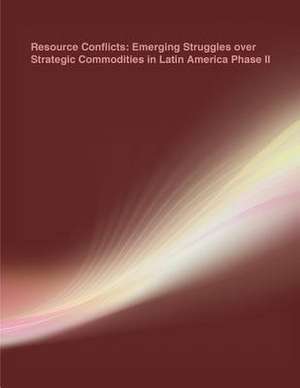Resource Conflicts
Autor Naval Postgraduate Schoolen Limba Engleză Paperback
Preț: 84.18 lei
Nou
Puncte Express: 126
Preț estimativ în valută:
16.11€ • 17.22$ • 13.43£
16.11€ • 17.22$ • 13.43£
Carte disponibilă
Livrare economică 27 martie-10 aprilie
Preluare comenzi: 021 569.72.76
Specificații
ISBN-13: 9781503145825
ISBN-10: 1503145824
Pagini: 60
Dimensiuni: 216 x 279 x 3 mm
Greutate: 0.16 kg
Editura: CREATESPACE
ISBN-10: 1503145824
Pagini: 60
Dimensiuni: 216 x 279 x 3 mm
Greutate: 0.16 kg
Editura: CREATESPACE
